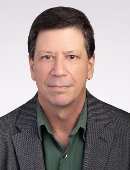Biography
Research Topics
Cancer, Cell Biology, Cell Cycle, Chromatin, Diabetes, Epigenetics, Gene Expressions, Gene Regulation, Gene Therapy, Growth Factors and Receptors, Hormones, Image Analysis, Imaging, Insulin, Insulin Receptor, Knockout Mice, Liver, Molecular Biology, Nucleus, Obesity, Oncogenes, Protein Kinases, RNA, RNA Splicing & Processing, Transcription Factors, Transcriptional Activation and Repression, Transgenic Mice
Cancer, Cell Biology, Cell Cycle, Chromatin, Diabetes, Epigenetics, Gene Expressions, Gene Regulation, Gene Therapy, Growth Factors and Receptors, Hormones, Image Analysis, Imaging, Insulin, Insulin Receptor, Knockout Mice, Liver, Molecular Biology, Nucleus, Obesity, Oncogenes, Protein Kinases, RNA, RNA Splicing & Processing, Transcription Factors, Transcriptional Activation and Repression, Transgenic Mice
